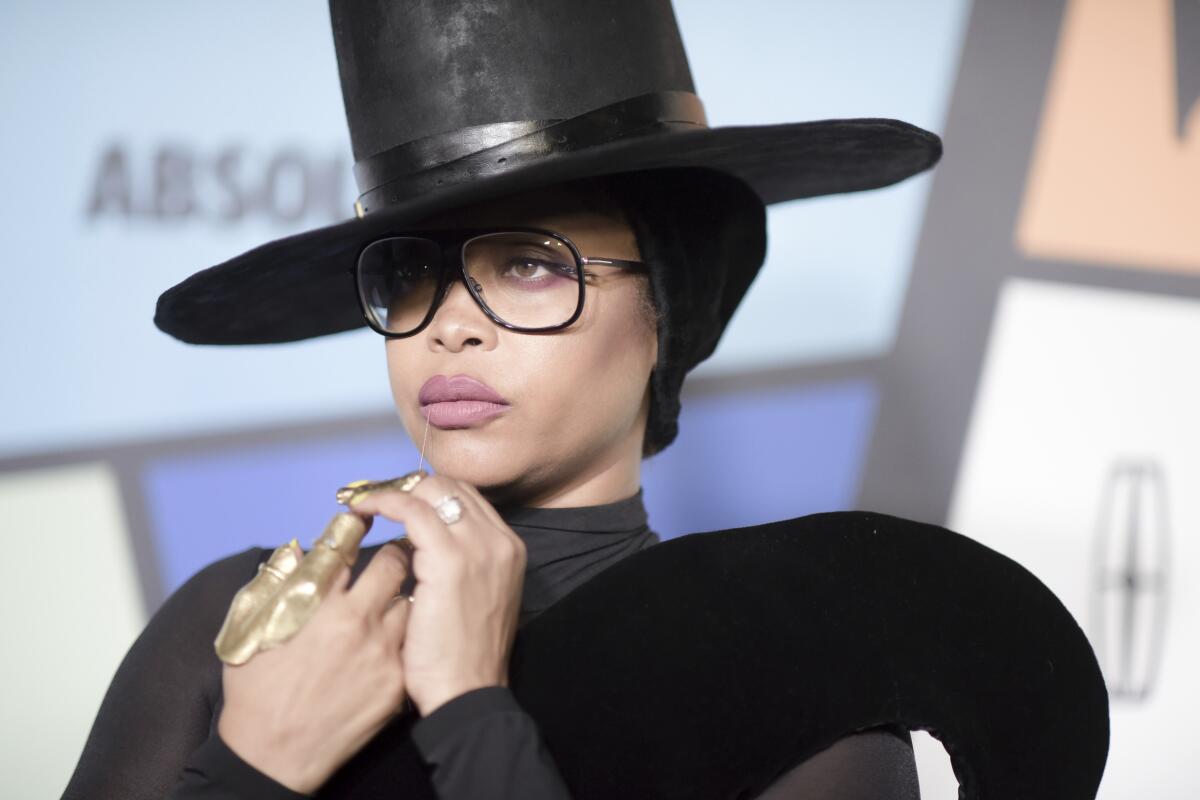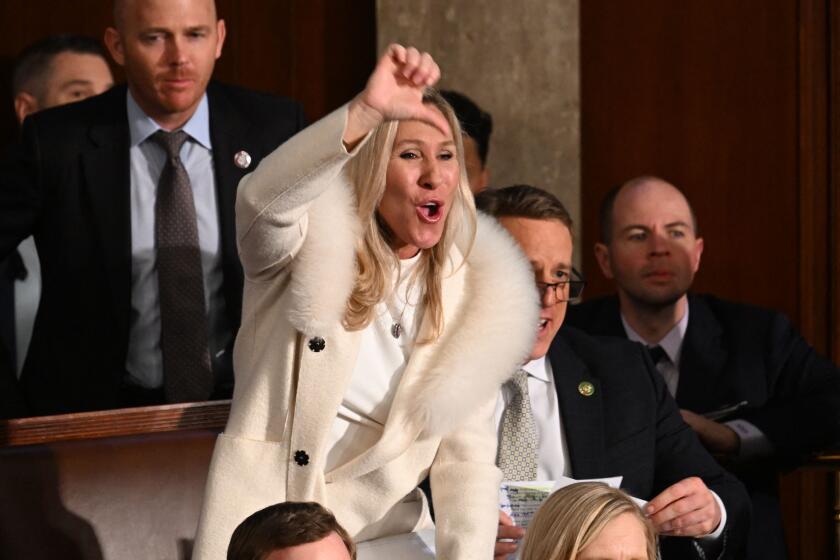What does ‘woke’ mean now? Erykah Badu, who popularized it, clarifies original definition

“Woke,” a term singer Erykah Badu reinvigorated in the late aughts on the track “Master Teacher,” has since taken on “a life of its own,” and she believes it has become a put-down for Black people.
“It doesn’t belong to us anymore,” the four-time Grammy Award winner said in an interview this week, reflecting on the evolution of the the word from a social-justice battle cry to a stereotype of dissent that is now weaponized as conservative invective.

Speaking during “Mavericks With Ari Melber,” the “On & On” and “Tyrone” musician discussed how she reintroduced the established term on her 2008 album, “New Amerykah Part One (4th World War),” and how it morphed.
“We did start a lot of stuff on there,” Badu said, “In that song ‘Master Teacher,’ the chorus is, ‘I stay woke,’ so ‘stay woke’ was introduced to the world by way of this album ‘New Amerykah Part One.’”
The 52-year-old singer also used the phrase years later in a tweet to support the feminist collective Pussy Riot, whose members were detained in Russia in 2012 on “hooliganism” charges after staging an anti-Putin protest inside a Moscow cathedral. Badu’s tweet prompted the term to go viral.
This article was originally on a blog post platform and may be missing photos, graphics or links.
Host Ari Melber played clips for Badu, showing her how woke has been used on talk shows such as “The Real” and in the chorus for “Redbone,” Childish Gambino‘s Grammy-winning 2016 single. The clips then showed former President Donald Trump and Florida Gov. Ron DeSantis shouting phrases such as “woke fascism” and “woke mob” during speeches and referring to them as attacks on conservative political views.
“I think they mean ‘Black,’” Badu replied matter-of-factly after seeing how the politicians appropriated the term. “Yeah. Just another way to say ‘thug’ or something else.”
“It is what is is. It doesn’t belong to us anymore, and once something goes out into the world it takes a life of its own. Its energy of its own,” she said.
Rick DeSantis and other conservatives are crowing about having killed off “woke” policies. But their celebration is way premature.
The R&B singer-songwriter then presented her own definition: “I can tell you what woke means: It just means being aware, being in alignment with nature, because if you’re in alignment with that, you’re aware of everything that’s going on.
“It’s not only in the political arena. That means with your health. That means in your relationships. That means in your home. That means in your car. That means in your sleep.”
The newer meaning of the word has been added to the Oxford English Dictionary and the Merriam-Webster dictionary, which now defines it as being “aware of and actively attentive to important facts and issues (especially issues of racial and social justice).”
The OED traced the origin of woke’s newer definition to a 1962 New York Times article by Black author William Melvin Kelley describing how white beatniks were appropriating Black slang at the time. By the mid-20th century, woke “had been extended figuratively to refer to being ‘aware’ or ‘well informed’ in a political or cultural sense,” and the dictionary credited Badu’s use of the term on “Master Teacher” with catapulting it into the mainstream “with a particular nuance of ‘alert to racial or social discrimination and injustice.’”
Both dictionaries also cited the term’s usage on social media and in 2014 during the Black Lives Matter movement.
Badu is the latest star to sit down for an interview with Melber for NBC News’ “Mavericks,” which is billed as a series of in-depth conversations with artists, musicians and cultural icons.
More to Read
The biggest entertainment stories
Get our big stories about Hollywood, film, television, music, arts, culture and more right in your inbox as soon as they publish.
You may occasionally receive promotional content from the Los Angeles Times.












